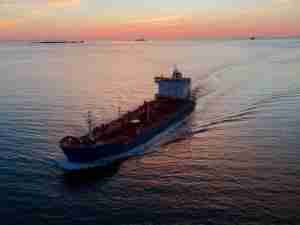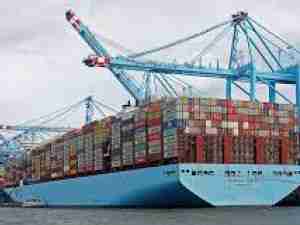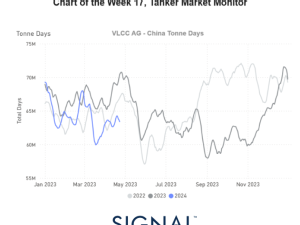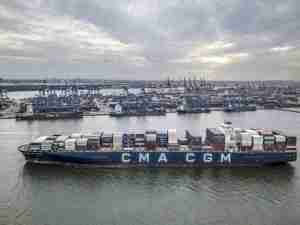Shipping stocks rose across the globe on Monday as disruption to Red Sea routes due to militant attacks was expected to drive up the prices they charge for moving goods in ocean containers.
The world’s largest shipping group, AP Moller - Maersk A/S, jumped as much as 4.7% in Copenhagen, while Germany’s Hapag-Lloyd gained 5.5% and US listed ZIM Integrated Shipping Services Ltd traded 8% higher in the New York premarket. The stocks were extending rallies from Friday when Maersk and Hapag announced they would halt journeys in the area.
About 30% of global container trade passes through the Suez Canal — which connects the Red Sea to the Mediterranean — according to UBS Group AG analysts. Given a lot of shipping contracts tend to be negotiated between December and March, firms may be able to lock-in higher-than-expected rates if disruption persists, the analysts including Cristian Nedelcu wrote in a note.
Shipping stocks were also lifted in Asia, with a gauge of Japan’s shippers rising as much as 5.8%. South Korea’s Korea Line Corp. and China’s Ningbo Ocean Shipping Co. both gained as much as 10%.

Sending ships between Asia and Europe around South Africa’s Cape of Good Hope instead of through the Suez would extend journey times by up to two weeks, according to Citigroup Inc. analysts. If all trades headed for the Suez were re-routed, there would be about a 6% effective container supply reduction on an annualized basis, the analysts including Kaseedit Choonnawat wrote in a note.
Shares of companies that move fuel by sea also rose on Monday, including BP Plc, which announced it would pause red sea transits. Oil tanker firm Frontline Plc jumped as much as 11% in Oslo.
The recent gains for shipping shares have provided some relief for investors after a year of underperformance for the sector. Freight rates declined post-pandemic as a surge in demand for physical goods faded and Covid-related supply snags eased. The jump in global interest rates has also hurt the sector, and Maersk last month announced thousands of job cuts.
Analysts at Barclays Plc are cautious on the benefit to firms from the Red Sea disruption, saying they don’t anticipate passage through the Suez stopping completely, as it did when the Ever Given ship was stuck there for a week in 2021.
“We do not expect the potential re-routing of vessels via South Africa to materially absorb the excess supply the industry is currently exposed to,” Alexia Dogani and colleagues wrote in a note, “We view the market reaction as overly optimistic.”










